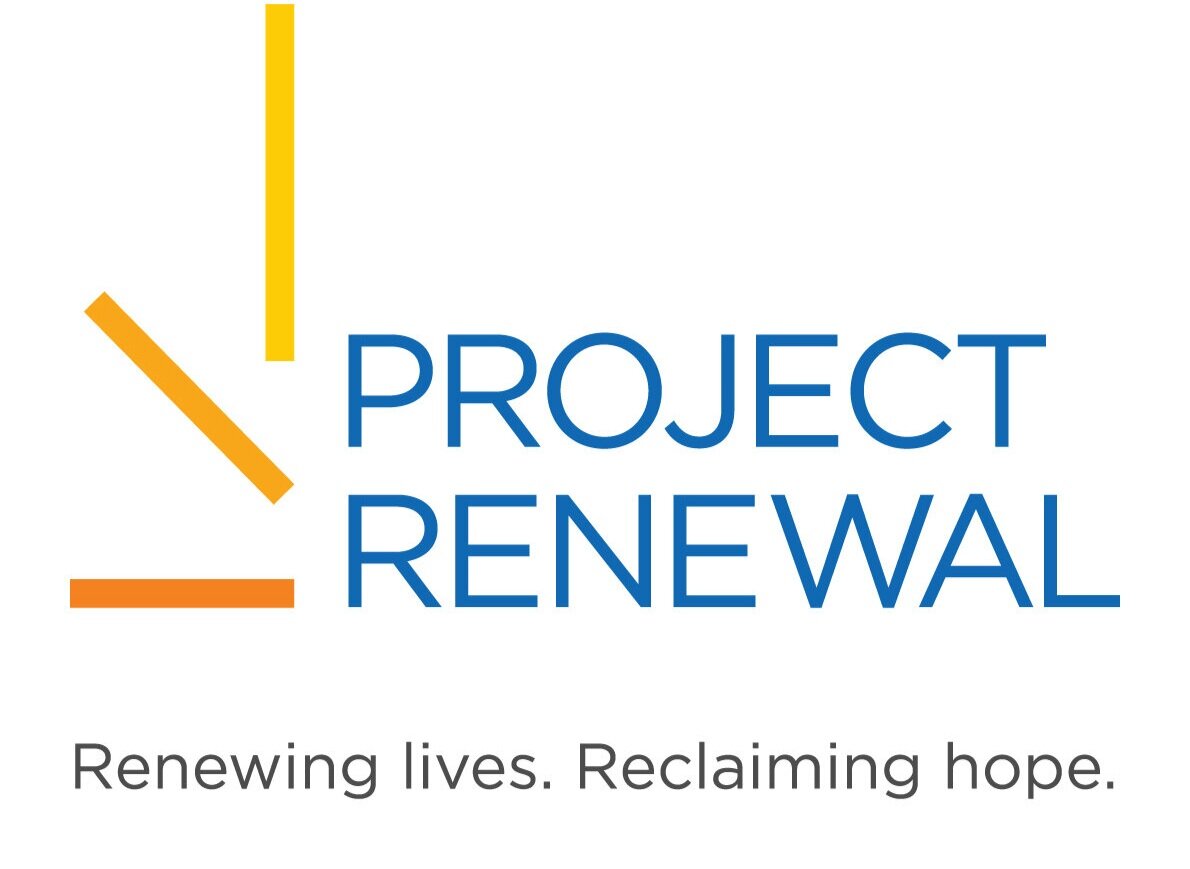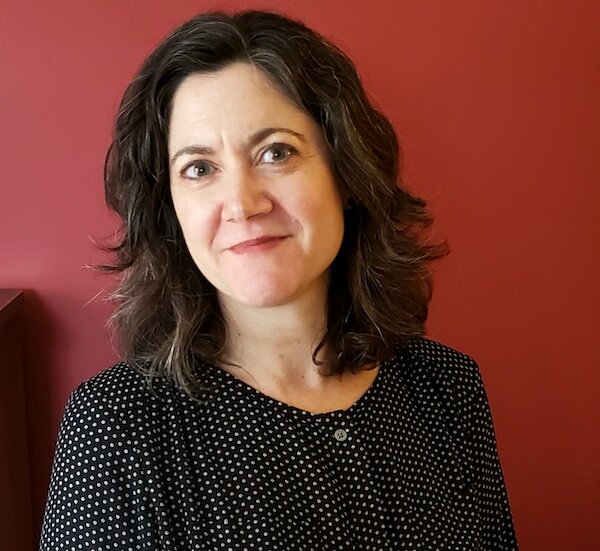COVID-19 Q&A: Allison Messina, VP of Workforce Development Services
/Allison Messina, Vice President of Workforce Development Services, Project Renewal
How are Project Renewal’s workforce development programs contributing in the larger battle against COVID-19 in NYC?
Project Renewal is providing a critical service to the community amid this crisis by connecting out-of-work New Yorkers with essential employers who are in desperate need of quality candidates. We are helping to fill that gap by connecting them to our workforce trainees who need jobs.
They are in high demand—we have placed 33 people in jobs in the past month. Our workforce development clients are working in essential roles throughout New York City and are putting themselves in harm’s way every day. They are on the front lines providing support in homeless shelters, cleaning buildings, delivering food and packages, and stocking grocery shelves. Their work keeps the city running and helps those of us sheltering at home to stay healthy and safe.
What role will Project Renewal’s workforce programs play in the recovery, once the economy starts to open back up?
In my 20 years of experience in workforce development, I’ve seen the critical role that these programs play in getting our city back on its feet after tragedies and challenges, including the September 11 attacks, the Great Recession, and Hurricane Sandy. The recovery after this crisis will be no different—Project Renewal’s workforce development programs will connect employers to qualified out-of-work New Yorkers to help get our economy back on track.
How is your team adapting to support your participants amid COVID-19?
I have been so proud of how quickly our team has adapted to these unprecedented challenges. In addition to helping our trainees with resumes, interview skills, and other traditional job search needs, our staff has stepped up in new ways. They are providing a lifeline by counseling clients about COVID-19 and referring them to resources through Project Renewal and other providers for food, medication, mental health support, and more.
We have also had to adjust to challenges posed by working remotely. Our initial efforts have been focused on contacting every client via phone, video, text, or email. Thus far, we have reached over 75% of our clients and are diligently working to contact the remaining folks who may not be stably housed or otherwise lack access to a phone or technology.
How has the job market for workforce development participants changed?
Our interns and graduates of the Next Step Internship Program (NSIP) are in particularly high demand. The program prepares out-of-work New Yorkers, including formerly homeless individuals, for careers in homeless services. New York City shelters are in dire need of talented frontline workers right now, and we’re even starting to see some service providers increase their compensation for these staff members.
In other ways, the job market hasn’t changed drastically for the New Yorkers we work with. Long before this crisis, our clients have helped our city run by working in essential positions. We continue to help our clients get jobs in social services, health care, transportation, and warehousing. Some industries are completely closed off, but there are a lot of opportunities out there right now for anyone willing and able to work. Sadly, many of these jobs are minimum wage positions. If anything good comes out of this horrendous pandemic, hopefully our society sees the immense value of our essential workers and provides these unsung heroes with better wages.
Why is it so important for people in NSIP to have regular work and a paycheck—especially now?
Many of our clients live paycheck to paycheck and need the income to support themselves and their families. Beyond that, many of the New Yorkers we work with are eager to help amid this crisis. They want to have meaning in their day and contribute in any way they can. It’s inspiring.
Can you give an example of how NSIP helped an out-of-work New Yorker land a full-time job in an essential position?
A Next Step intern at Project Renewal’s Fort Washington Men’s Shelter has been such a valuable contributor to the facility and the shelter residents that he was offered a full-time position several weeks before NSIP graduation. Our interns at all sites have been asked to take on additional shifts and have been indispensable in supporting our city’s most vulnerable residents throughout this pandemic.
How do you see your workforce development programs adapting as the coronavirus crisis evolves?
We’ve already made significant changes. At the start of this crisis, we immediately reduced the classroom training for our NSIP interns. This allows our interns to work additional hours at the shelter sites to help with critical staff shortages, and in turn, provides our interns with invaluable on-the-job experience. We are currently working on a plan to provide remote training to the next NSIP cycle.
More broadly, technology plays a huge role in how we adapt our program during this crisis. All of our work with clients has to be done remotely right now. While we’ve been able to provide individual services to most of our clients via phone and video, we need to ramp up our ability to provide training workshops and groups online. This poses a unique challenge to the New Yorkers we work with. Many of our clients have limited phone access, no computer or internet, or a lack of digital skills. We need to get creative about how we engage our most vulnerable clients.
As this evolves, we will take the lessons we’ve learned from implementing technology to better serve our trainees and employers. Many of our services have the potential to be provided through online platforms, including informational sessions with potential clients, one-on-one interview practice, job readiness workshops, employer recruitment events, and job retention services. Remote services would supplement the in-person services that we provide.
How can individuals, the government, foundations, and employers/corporations help support Project Renewal’s workforce development programs—now and in the future?
There is a critical need for funding to support workforce development programs, particularly for the most vulnerable New Yorkers. We would love to see our government and other funders invest more in workforce development to bolster our economy as it recovers. One way that funders and government can play a meaningful role is to invest in subsidized employment programs, which offer temporary paid jobs that help New Yorkers meet their basic needs, gain meaningful work experience, and build workplace skills. These programs will help businesses reopen and staff up quickly while minimizing costs and risks, create job opportunities for the unemployed, and stimulate local economies. Given the growing unemployment rate, Project Renewal’s employment services will be in high demand and we’ll need funding to support program growth. With substantial direct funding, Project Renewal can run a subsidized employment program.
On a smaller scale, we also need funds to invest in technology to support our evolving program model, and we need to provide our clients with devices such as smart phones and laptops. Any donations or partnerships that support getting New Yorkers back to work are welcome.
About Allison Messina, Vice President of Workforce Development Services
Allison joined Project Renewal in 2014 and oversees all Project Renewal workforce development programming, including our Next Step and Culinary Arts Training Program. In this position she provides strategic, financial and operational management of the department and ensure high quality services and outcomes. Prior to joining Project Renewal, Allison spent fourteen years at FEGS Health & Human Services, where she held several management roles in workforce development programs before becoming Assistant Vice President of Employment Initiatives. As Assistant Vice President, Allison managed a $6M portfolio that served individuals in need throughout New York City and Long Island. Allison has an M.P.A. from Baruch College and a B.A. from Hunter College.




